Eight weeks after I had my first child I moved to Mongolia with my Mongolian husband. I was superwoman. In the short two months since my baby’s birth I had packed all our belongings, worked out passports and visas and plane tickets. I hosted a goodbye party and did a little speaking tour to raise money for mission projects in my new homeland. It was full-speed ahead for me! I mean, hey, I had her naturally, at home. I was relatively healthy. So, what could hold me back?! I was woman and you would hear me roar.
Then I got to Mongolia and people were appalled – offended even. Why was I out and about so soon with my baby? Why was my head not covered? Why did I not have cotton in my ears? Why was I drinking cold beverages?! And for the love of God why did my baby not have a hat on?!?!?!
I was in a different world. A place where they had this thing called lying-in, where postpartum women and their babies were given special consideration, special food, special care. Their bodies were treated gently and with compassion. They got special foods and warm drinks. And most importantly they had to stay inside and nurse their babies! How archaic.
Then again….
Come to find out, many cultures have a 40-day (give or take) rule for post-partum women. Koreans have a (kind of) stinky soup to drink. Chinese women can’t go out for 30 days and are discouraged from showering. Latin American women bind their bellies. Ugandan women shave their heads. Indonesian and Malaysian women are not allowed to cook or clean for the first 40 days. In almost all cultures throughout the
In almost all cultures throughout the world, the post-partum woman is treated gently, with respect and honor. She’s allowed to rest, nurse her baby and little else. She is usually cared for by other women in her family or community.
In Mongolia, the lying-In time includes, among other things, drinking warm drinks and avoiding cold ones; keeping your head covered – especially your ears so you don’t “get wind.” A woman is not to get cold, at all. Warm clothes and layers. During the 40 days, anyone who comes to see mother and/or baby must bring a gift – it’s required to prevent breast infections. (No, I’m not making that up.)
Postpartum Principles:
-
“Confinement“–this just means if you don’t have to go out, don’t! Stay home with your baby and be as comfortable as possible. In the bed, on the couch, doesn’t matter. Just let the outside world keep spinning, while you and your baby have some special time together.
-
Warm foods. This hails from an Eastern understanding of the hot-cold balance in all things. But, for the average person who doesn’t have a nice Asian auntie caring for them, remember this: soups, broths, teas = good. Ice cream, smoothies, raw veggies = not so good.
-
Warm clothing. Again with the keeping warm thing. Postpartum is a time for cuddly blankets and layers and slippers. Easier to do in the winter, for sure. Just try to stay warm.
-
Nurse your baby. This is your one job. Your only job.
To the American mind, this might all sound a little crazy or maybe just crazy old fashioned. The American independent spirit runs deep. It’s how we overcome obstacles and accomplish the American dream! But in our enthusiasm, we may have thrown the baby out with the bathwater.
Awareness of Postpartum Care
Because pregnancy is a natural and healthy function and just because we can do it our way, empowered and free, does not mean that it is also not a sacred space and time in the life of a mother and child. That period has an intrinsic value and holiness, that should be acknowledged and respected. Our bodies and souls do need to recover from the business of birthing a baby. It is possible to make the passage into Motherhood a gentle one, in order that we be more gentle mothers.
Thankfully, the awareness of the need for postpartum care is on the rise–thanks to postpartum doulas and support groups and moms who are willing to share their experiences. Jacqueline Kelleher, doula, gives the following benchmarks for good postpartum support: (Jacqueline Kelleher, “What Women Need During the Postpartum Period: A Top Ten List” (lecture presented at the DONA International Conference, San Francisco, July 25, 2003) )
1. The mother needs physical support so she can rest.
2. The mother (and father) needs support and encouragement to establish successful breastfeeding.
3. The couple needs support for avoiding and minimizing PPMDs.
4. The couple needs information and education on how to integrate this baby into the family.
5. The couple needs information and education on infant characteristics and infant care skills.
6. The couple (especially the mother) needs someone to listen to her and to honor her birth story.
7. The couple needs a peer group—people who are not only parents, but also parents of young babies.
8. The couple needs patience.
9. The mother needs support while healing physically from birth.
10. The mother and father both need physical touch.
Did you observe a lying-in time after the birth of your baby? In what ways could your community have supported you better?
BIO: Daja is the happy mom of eight children with one on the way. All her babies have been born at home with a midwife. She still likes to roar, but now takes at least 40 days postpartum before roaring in public. She is the co-founder of The Provision Room, with her bestie, Kristina, about abundant home-centered living! Together Daja and Kristina write, speak and proclaim that a joyful life can be found in hearth and home! This includes traditional foods, natural remedies, gentle parenting, liturgical living, and just enough quirkiness to keep you guessing!

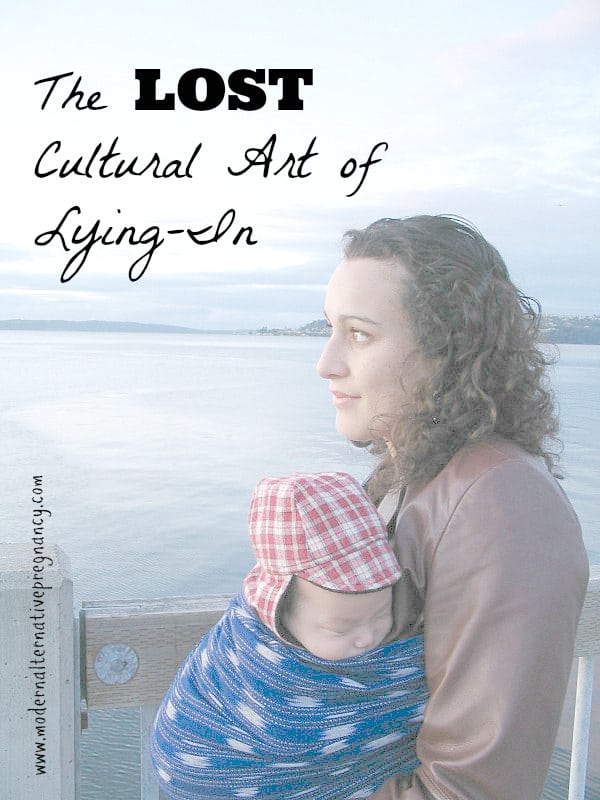
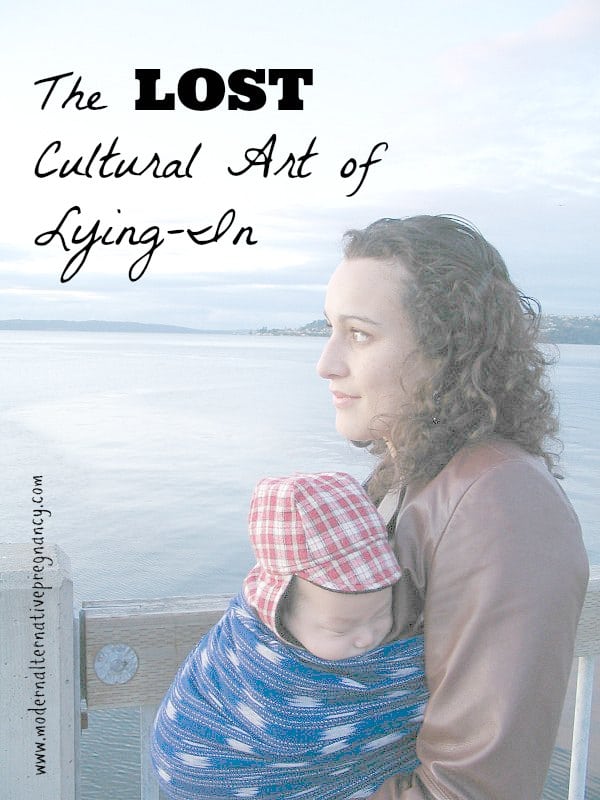
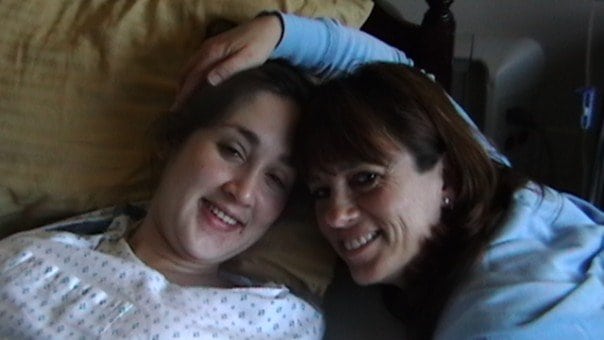

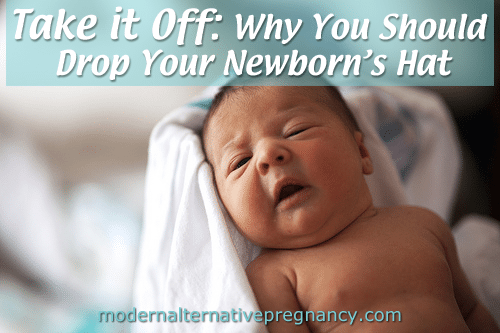
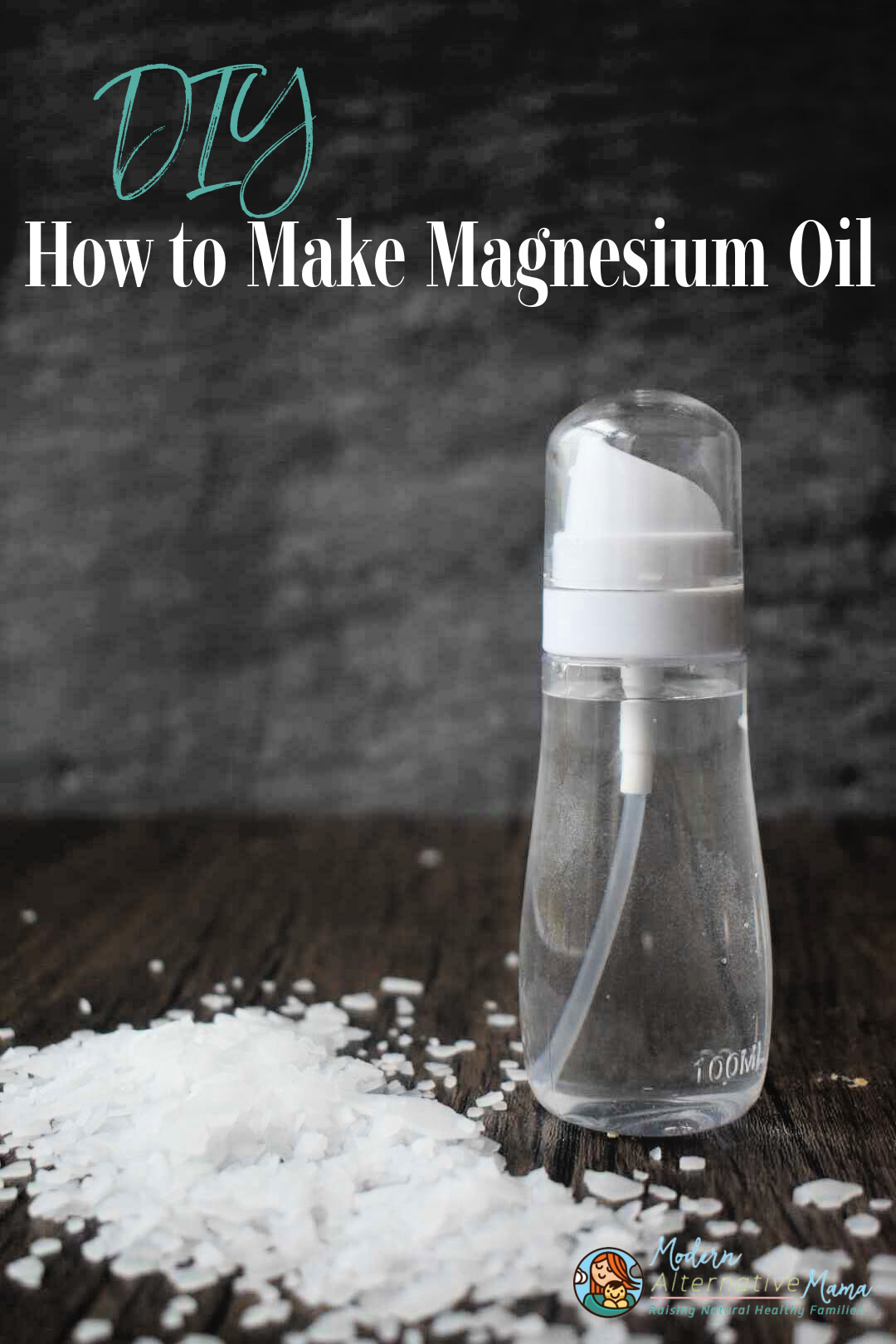

I’m snuggling in bed with my newborn of thirty hours as I read this. I’ve always been blessed to have a few weeks of help after having a baby, and I feel like it makes a huge difference. American mommies need to know that it is okay to take time to recover. So many have to make do with a husband taking a couple days off work or a mom coming for a week…not that that isn’t great, but I know I can’t recover that fast, and I don’t think most other women can either. No wonder we have problems with postpartum depression when we expect so much of ourselves! I’ve had sisters and friends who came to stay for a month or more after births, cooking, cleaning and taking care of my older kids. It is such a blessing. I’m not as strict as many cultural traditions, but I’m very grateful for the opportunity to take it easier, heal and connect with my new little one.
I guarded the PP period diligently when I started having my babies 3 decades ago. I am thankful for a caring community who provided meals but I had also spent weeks freezing meals and making up batches of recipes to eat in those first weeks. One thing that helped remind me not to overdo was that I stayed in “house clothes” as long as possible– pajamas, robes, comfy leisure wear. I could lay around and stare at my sleeping newborn in my arms or snuggle with a nursing babe while reading books with the older children. Warm memories.
I would love to have a laying in period! After 4 kids and another on the way, I would welcome it. It’s really too bad we’ve got a culture with a do it yourself and no pain, no gain attitude. My mom lives next door and says she’s going to help me a lot. However, we don’t even let her babysit because she’s not (to put it mildly) normal. So, in this instance, I’d rather have no help at all than the wrong help.
Both of my children were premature and required stays in the NICU. That is the opposite of a lay-in. I fortunately had a lot of help from family and community. We have made a lot of changes in our diets and will hopefully have a different outcome with this pregnancy.
I think what is most important is to give yourself permission to try and ask for help, regardless of your circumstances. We don’t have to pretend to be from a different culture, but we can choose to add rest into ours.
I had a baby last Thursday, my husband went back to work Friday and I have 4 older kids 6 and under….what I wouldn’t do for some help. I’m going back to work on Thursday 2 weeks post partum and honestly can’t wait because I’m guaranteed an uninterrupted 30 minute break.
Korean women are given seaweed soup, not stinky soup (unless you have a very sensitive sense of smell and the soup smells bad to you). It’s because it helps with raising your iron levels as wells as baby’s. Worked great because my iron levels usually dropped significantly after having both kids. So it’s all my mom made for me. My mom came and spent a month with us helping with baby, my first and just the house work in general. She tried to protest me going out, getting cold or doing any work but she understood when I did because even though I am Korean, I grew up in western culture more and it’s what made me comfortable. But it was very nice having someone there to help since my husband worked and having a toddler made things a bit more difficult
[…] my first post last month (The Lost Art of Lying-In), I explored a bit how traditional cultures around the world respect and honor the postpartum […]
It’s wonderful that so many of you have mothers who are financially independent and can take month off work to make your life easier so you can have a “Lying In” period. My mom, however, was busy working her full-time job. She stayed home with us when we were little, then busted her butt working to pay for our college. By time we were having babies, she was busting her butt working to save for her retirement to ensure she was independent from her kids (financially) when she retires. I wonder how many of our mothers were able to “lie in” for a month? I’ll take a day or a week with my husband caring for us, with mom’s support for what she can manage, over saddling my mom with taking care of me, her ADULT daughter who CHOSE to have a baby, while she has to limit her ability to save for her retirement. She paid her mothering dues; it’s time for me to pay mine.
I’m British and this idea though old, still hangs around a little bit. The lying in period used to be 2 weeks in the UK and was observed up until around the 1950s – or so my mother tells me. My mum stayed with us for 6 weeks after each of my children were born to be my extra pair of hands and to give me some rest and to take away that feeling of stress about the housework. She did the same for my sister when she had her two children. It was such a gift. At 6 weeks I had a check up at the doctor and when we (mum and baby) were declared all well and fit and healthy, my mother left and returned home. I hope some day to do this for my daughter. Incidentally we did venture out but only when I wanted to. And we had some lovely mornings at beautiful parks taking gentle walks with the baby.
Thank you for your beautiful article. I did stay in for 40 days with my 2 babies. I found I was very sensitive to energy and if anyone would visit, after sometime me and the baby had to retreat into our room. Because of my experience, I became a postpartum doula and have helped many new families. I wish more new moms would feel comfortable with the lying in period. Everything else can wait.
[…] to rest and recover up to 40 days after giving birth. New moms were treated as queens during this “lying-in” period. In some countries, this tradition is still wisely observed […]